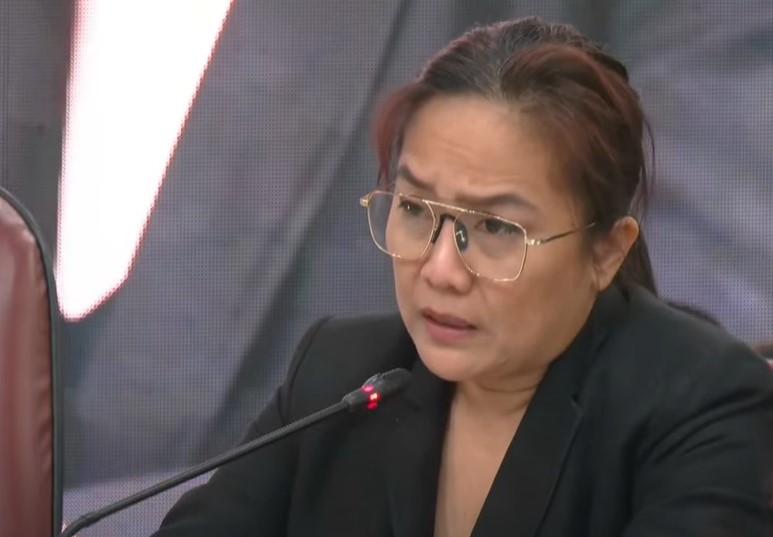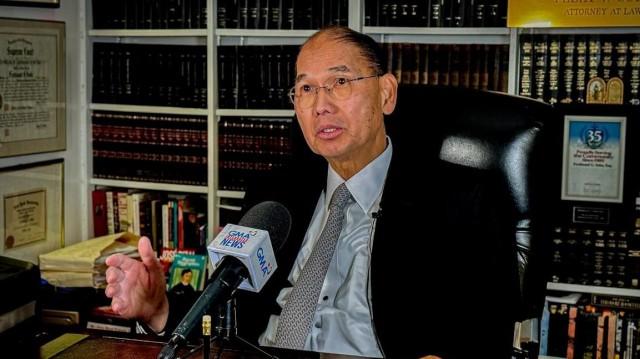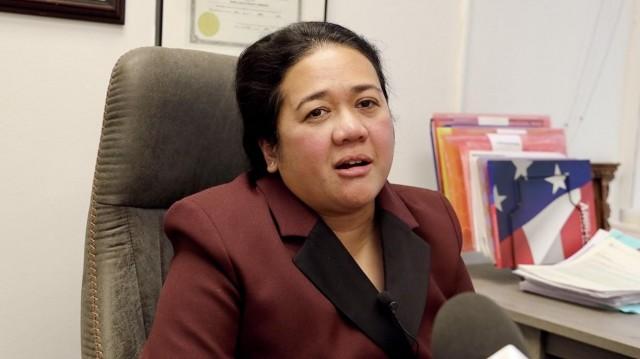Two immigration lawyers in NY believe Garma applying for political asylum in US

NEW YORK — Two immigration lawyers in New York believe that retired Police Colonel Royina Garma, who was arrested on November 7 by Customs and Border Protection in San Francisco, California, is now in the process of seeking political asylum.
In an interview with GMA Integrated News, Attorney Ferdinand "Dean" Suba of Suba Law Office, an immigration lawyer in New York with nearly 40 years of experience, said there is no other legal reason for Garma to remain in Customs and Border Protection custody except for her asylum application.
In cases involving canceled U.S. visas, Suba said such matters usually do not last beyond a week, as individuals are often sent back to their country of origin immediately.
He said the only plausible explanation for Garma's extended detention is her filing of an asylum application.
"There's a phrase people often use, 'airport-to-airport,' which refers to situations where, upon arrival in the United States, your visa is canceled, and you're sent back to your home country immediately. However, if you have a valid claim for relief, such as an application for political asylum, you could invoke it upon arrival. For example, if you fear persecution or harm upon returning to your home country, you might file for political asylum by demonstrating credible fear. This claim would need to be assessed to determine if you qualify for protection under U.S. immigration law," Suba said.
Suba added, "The only reasonable explanation for this is that she must have filed an application for asylum. Either she submitted it upon entering the United States due to her credible fear, or she was placed under immigration proceedings and filed the application during that process. When you file an application for political asylum, it undergoes a review process. During the pendency of this review, you are generally allowed to remain in the United States."
Unless the Philippine government files a clear case against Garma, Suba said, her asylum process will continue.

If Garma has indeed filed for political asylum, it is possible she has already been released on her own recognizance, according to Suba.
"There is no crime committed by her in the United States, nor is there any allegation from the Philippines that she has committed a crime there. Therefore, her political asylum application will proceed through the proper process. A person cannot be detained for an extended period if they have a legitimate and bona fide application. In such cases, she should be released," Suba said.
"In fact, an asylum applicant is entitled to file for an Employment Authorization Document (EAD). This allows the applicant to work legally in the United States while their asylum application is under review, whether it is ultimately approved or denied. As a result, she would not only be allowed to stay in the country during the review process but also have the opportunity to obtain work authorization," he added.
Credible fear of persecution
Attorney Licelle Cobrador, executive director of the Filipino American Legal Defense Fund, explained that qualified asylum applicants must have a credible fear of persecution.
"This is called affirmative asylum because you entered the U.S. with a valid visa. You will submit your application to USCIS by filling out Form I-589. You will also include a statement detailing the incidents of harm or threats you've experienced in the past and why you fear returning to your country. The grounds for asylum are race, nationality, religion, membership in a social group, or political opinion," Cobrador said.

Suba emphasized that Garma's testimony before the Quad Committee in the House of Representatives could serve as strong evidence for her asylum application. However, if a case is filed against her, the U.S. Citizenship and Immigration Services (USCIS) could deny her application.
Garma has been accused of masterminding the killing of former PCSO Board Secretary and retired General Wesley Barayuga on July 30, 2020.
"She was a witness during the Quadcom Committee hearing, and the exposures she made during that hearing could justify her credible fear and support her application for asylum," Suba said.
Suba added, "The question now is whether any case filed against her meets the legal requirements for the crime she is alleged to have committed, assuming there is full compliance with all the necessary elements of that crime. If the Philippines determines that a crime has indeed been committed, they might file for her extradition based on those allegations."
"This will depend on the existence of a mutual legal assistance agreement between the two countries, which the Philippines could invoke. On the basis of such an agreement, if an extradition request is made and a pending case against her exists, it could potentially take precedence over her asylum application," he said.
Under Chapter 7 of the Privacy Act of 1974, the U.S. Citizenship and Immigration Services prohibits sharing any information about an asylum applicant to ensure their safety unless the applicant provides written consent or Homeland Security authorizes it.
Despite multiple attempts by GMA Integrated News to obtain information about Garma's case, the Department of Homeland Security's Customs and Border Protection cited the Privacy Act as a safeguard for all asylum applicants.
"Privacy laws prevent U.S. Customs and Border Protection from disclosing individual admissibility cases," said Jaime Ruiz, Strategic Media Engagement officer, in an email response to GMA Integrated News.
This confidentiality is critical, as unauthorized disclosure of information may place the applicant or their family at risk.
Earlier, the Department of Justice (DOJ) in Manila said Garma was being held in the US for alleged money laundering and human rights violations in connection with the Magnitsky Act.
Passed in 2016, the Global Magnitsky Human Rights Accountability Act imposes sanctions on perpetrators of human rights violations and corruption anywhere in the world.
GMA News Online has reached out to the DOJ to confirm if Garma has been charged by U.S. authorities in relation to the Magnitsky Act. Further, GMA News Online has asked Garma's lawyer in the Philippines if she has already applied for asylum in the U.S. — VDV, GMA Integrated News




